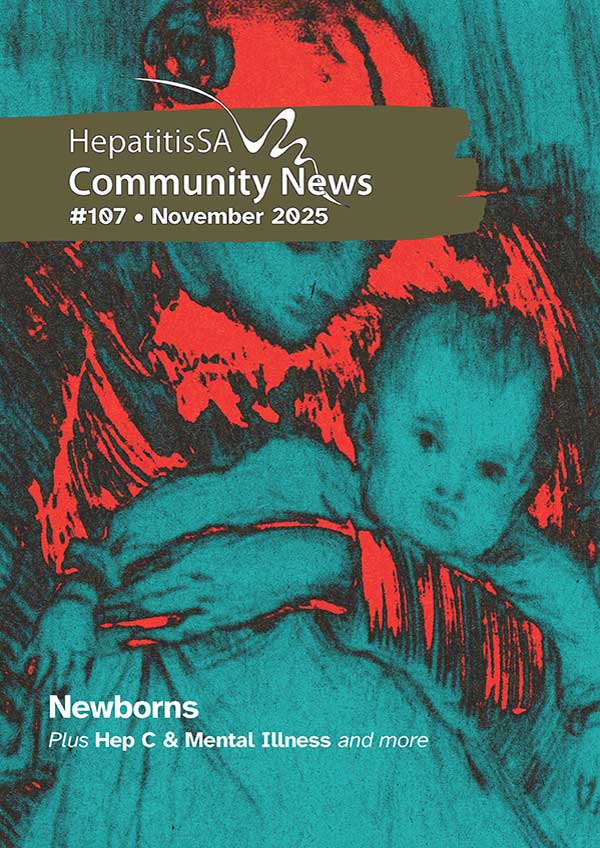The Australian Federal Budget handed down on 14 May, includes some welcome funding for the fight to eliminate viral hepatitis by 2030. That said, it is disappointing to note that hepatitis B is again given a back seat with less than half the total funding for hepatitis C initiatives, despite the fact that in Australia, there are more people living with chronic hepatitis B than there are with hepatitis C.
The continuation and expansion of the National Strategies for Bloodborne Viruses and Sexually Transmissible Infections is funded over the next two years to the tune of $126.5 million, specifically to extend and expand activities to support the prevention, testing and treatment of blood-borne viruses and sexually transmissible infections, including support for First Nations communicable disease services.

The funding includes:
- $32.3 million over two years from 2024–25 to continue support and promote vaccination uptake in First Nations communities.
- $28.6 million over two years from 2024–25 to continue support and expand syphilis and sexually transmissible infections testing in First Nations communities.
- $17.5 million over two years from 2024–25 to support continued delivery of the national blood-borne viruses and sexually transmissible infections strategies, including to implement culturally safe sexual health services for First Nations peoples.
- $16.5 million over two years from 2024–25 to continue and expand communicable disease molecular point of care testing for First Nations, rural and remote communities.
- $9.9 million over two years from 2024–25 to continue and expand the national hepatitis C point of care testing program.
- $7.9 million over two years from 2024–25 to continue funding peak bodies to implement the national blood-borne viruses and sexually transmission infections strategies.
- $7.8 million over two years from 2024–25 to develop and pilot hepatitis B projects to reduce transmission of hepatitis B in Australia.
- $6.0 million over two years from 2024–25 to continue support for hepatitis C projects to reduce transmission of hepatitis C in Australia.
The Government has also announced Hepatitis Australia will receive funding for its work leading the national effort to eliminate hepatitis B and hepatitis C as public health threats by 2030, which will help deliver the Fourth National Hepatitis B Strategy 2023-2030 and Sixth National Hepatitis C Strategy 2023-2030 which are set for public release in coming months.

The Budget also provides a fairly minimal annual sum of $100,000 for payouts to people who were infected with hepatitis C through compromised blood products before universal testing was introduced.
As noted earlier, hepatitis C continues to receive more attention than hepatitis B: indeed, the total hepatitis C allocation ($15.9 million) is more than double the allocation for hepatitis B ($7.8 million). Funding for hepatitis C initiatives include $9.9 million for continuation and expansion of testing programs, as well as $6 million for initiatives to reduce transmission. There is no funding for hepatitis B testing or screening, only $7.8 million for projects to reduce transmission. Much of that funding will likely go to to infant/child vaccinations initiatives.

Though this funding is very important, it’s quite a small amount overall for a health response which is currently not meeting the targets to which the government has committed. It’s also part of a Budget that seems to be aiming for a conservative, “responsible” look, which means a large surplus of unspent money when many other areas of health (such as the gap between metro and rural care) as well as numerous other areas of public spending (education, Newstart and other allowances, aged care, domestic violence, environmental protection and restoration, refugee support) are crying out for more funding.
Simultaneously, the government is also committed to spending more than a third of a trillion dollars over the medium term on nuclear submarines that commentators believe are of unproven utility and questionable safety. For more context, the government is granting almost four times as much as it is spending on viral hepatitis to a foreign company for a quantum computer that will not even be owned by Australia.
It is, in the end, a cautious Budget in an age that needs bravery to tackle big problems, and the long-term health burden of viral hepatitis needs bravery if it is to be dealt with.
Last updated 10 April 2025
More from:
Enjoyed this article? Subscribe to be notified whenever we publish new stories.
Subscribe for Updates





